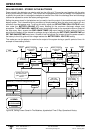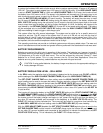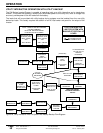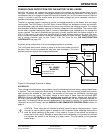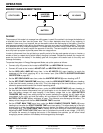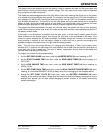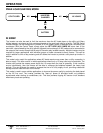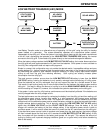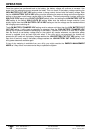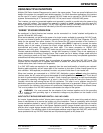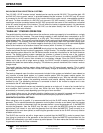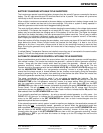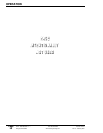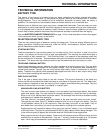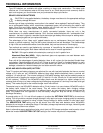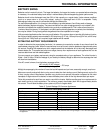
OPERATION
Page
94
2001 Xantrex Technology, Inc.
5916 - 195th Street N. E.
Arlington, WA 98223
Telephone: 360/435-8826
Fax: 360/435-2229
www.traceengineering.com
SW Series Inverter/Charger
Part No. 2031-5
Rev. C: February 2001
Once the system has transferred back to the battery, the battery voltage will continue to increase if the
power from the alternative source exceeds the loads. This can result in the battery voltage reaching the
HIGH BATTERY CUT OUT VDC setting unless a charge control device limits the battery voltage. Note
that the LOW BATTERY CUT IN VDC setting must be set below the external charge controllers regulation
setting or the system would never transfer back to the battery. The best compromise involves setting the
BULK VOLTS DC equal to the FLOAT VOLTS DC default value, and setting the LOW BATTERY CUT IN
VDC setting to the default BULK VOLTS DC setting. Make sure the external charge controller is set
slightly higher than the LOW BATTERY CUT IN VDC setting so that the voltage can be reached without
the charging source shutting off.
The LOW BATTERY TRANSFER VDC setting must be always set higher than the LOW BATTERY CUT
OUT VDC setting. If utility back-up operation is expected, keep the LOW BATTERY TRANSFER VDC
setting high to prevent excessive discharging of the battery. It should not be set to a level that is higher
than the normal at rest battery voltage level or the system will transfer whenever no alternative power
source is available (such as each night with solar). If the utility grid is not energized, the inverter will
operate the AC loads until the battery voltage reaches the LOW BATTERY CUT OUT VDC setting. It will
then shut off and only reset if the battery voltage reaches the LOW BATTERY CUT IN VDC level or the
utility power becomes available again.
If time of day metering is available from your utility, you might consider the ENERGY MANAGEMENT
MODE as it may offer a more economical way to operate the system.



